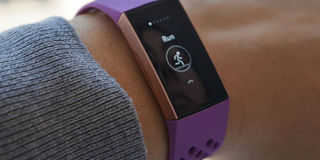Trackers can ease your fitness routine

Fitness tracker devices bring fervour to fitness but are also accessories for your wardrobe, helping you break a sweat and look good. NETPHOTO
What you need to know:
Fitness tracking devices are becoming steadfast workout companions. Fitness trackers can help you move more, sleep better and improve your overall health.
Fitness devices come as clip-ons which can be attached to clothes but majority are wristbands or smart watches. Smart phone users can also download fitness tracker apps. The fitness tracking devices harvest incredible amounts of data from the wearer as they go about their daily duties. They track and record the steps taken, calories burnt, heart rate, blood pressure and sleeping pattern.
150 minutes
Others can sense your breathing pattern, blood glucose levels and other vital signs. A few can vibrate your wrist and nudge you to wake up if asleep and need to be awake.
Some can alert the wearer to stretch their muscles or move if he sits still for too long, or sound a warning if one is taking too much caffeine, alcohol or is starved of sleep. And like a good trainer does, they chime to celebrate when you achieve your goals. They glean out the information that is typically gathered by a nurse when you visit a hospital, before you walk into a doctor’s room. The only difference is that these devices accumulate the information continuously and silently.
They can present a much more elaborate personal health history than what a health worker can collect in one or in spaced visits.
Physical exercise has immutable benefits to human health. Yet, partly due to our increasingly sedentary life, the world is in the throes of intractable non-communicable diseases. Many of these can be prevented or pacified by regular physical exercises.
According to the American Heart Association, adults should get at least 150 minutes per week of moderate-intensity aerobic exercise or 75 minutes per week of high-intensity aerobic exercise — or a combination of both.
Waterproof
If you use a fitness tracker to motivate you to meet or exceed the above targets, the odds are that you’ll reap the health benefits that come with regular exercise. Some advanced devices can send information directly to a smartphone or personal computer, making it possible to share it with a doctor for analysis and advice. If this information is shared with a doctor on regular basis, it can enable him keep an eye on an individual’s health, especially if there is a good reason for close monitoring.
What to look for
When you are shopping for a fitness tracker, make sure it can track and transmit the information you need about your health and fitness. Also, check whether it can connect with your phone or computer. And because you need to wear your device all the time, make sure it is waterproof just in case you swim or shower while wearing it.




